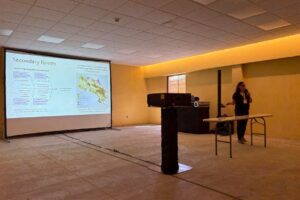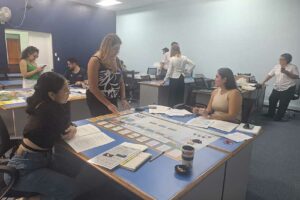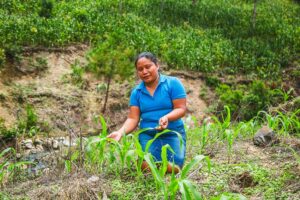CATIE Collaborates in the Review of Landscape Restoration Policies at International Meeting in Brazil
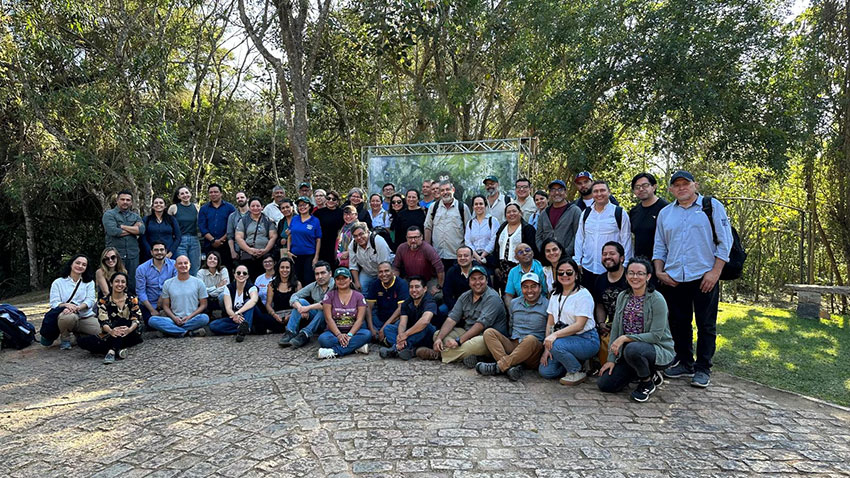
- The institution highlighted the importance of consolidating effective policies for ecosystem restoration in Latin America.
Between August 23 and 30, the third international meeting of the Landscape Restoration Monitoring Acceleration Program took place in Brazil, an initiative led by the World Resources Institute (WRI) and CATIE, within the framework of the 20x20 Initiative for restoration in Latin America.
The event brought together representatives from governmental and international institutions from more than ten countries across the continent, responsible for promoting ecosystem restoration and fulfilling the commitments of the Convention on Biological Diversity.
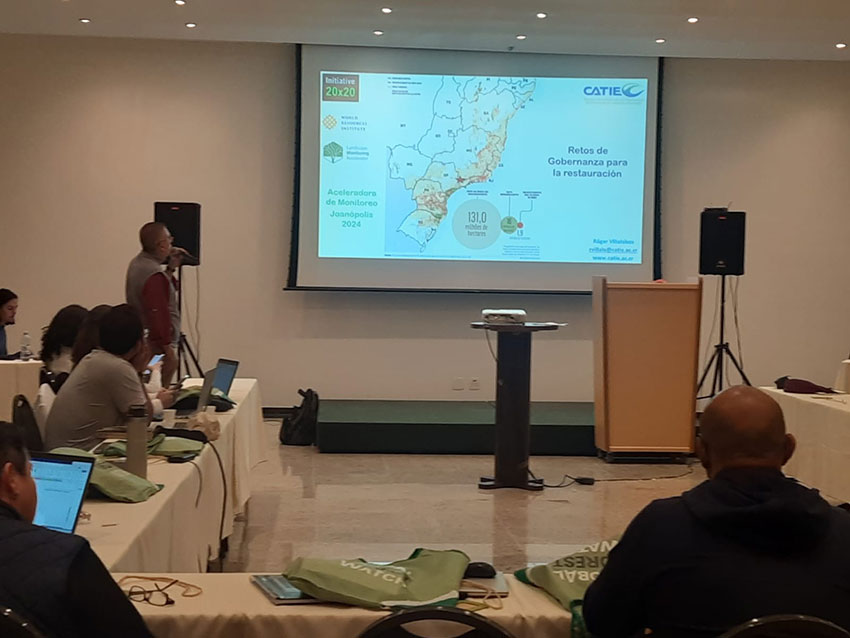
The meeting was held in two emblematic locations for ecological restoration in Brazil: Joanópolis, in the state of Sao Paulo, and Extrema, in Minas Gerais. Throughout the week, participants reviewed the progress and challenges of the restoration monitoring programs in their countries, with a special focus on how these efforts can effectively contribute to the rescue and recovery of native biodiversity, in line with the Global Biodiversity Framework of the Kunming-Montreal agreements of the Convention on Biological Diversity.
The event took place in a region where significant efforts have been made to restore the Brazilian Atlantic Forest biome, one of the world's most biodiverse ecosystems, which has lost more than 100 million hectares since the beginning of the colonial period.
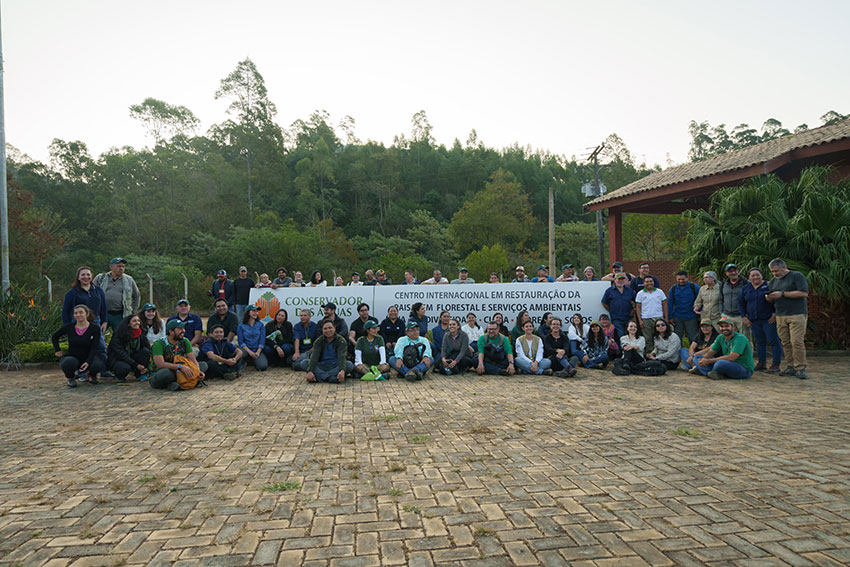
Participants had the opportunity to visit and analyze on-site restoration projects of several years, such as the "water sowing" initiative within the Conservador da Mantiqueira program in Minas Gerais, and the restoration process in the water reserves of the city of Sao Paulo in Nazaré Paulista, led by the Ecological Research Institute (IPE).
Representing CATIE, Róger Villalobos and Luana Vanessa de Souza from the Climate Action Unit, and Alejandra Martínez from the Forests and Biodiversity in Protected Areas Unit, contributed to the organization of the event.
Villalobos emphasized that both WRI and CATIE have been partners of the 20x20 Initiative since its inception, enabling both institutions to support the development of national or local strategies, research, and capacity building in the region. He expressed hope that the Restoration Policy Acceleration Program will continue to grow and consolidate as an international space for the ongoing review and improvement of ecosystem restoration policies in Latin America. He noted that Latin American countries have taken on challenges to restore millions of hectares of degraded lands, and the magnitude of such efforts requires periodic review and improvement of the policies that make them feasible, in addition to the continuous exchange of technologies and strategies.
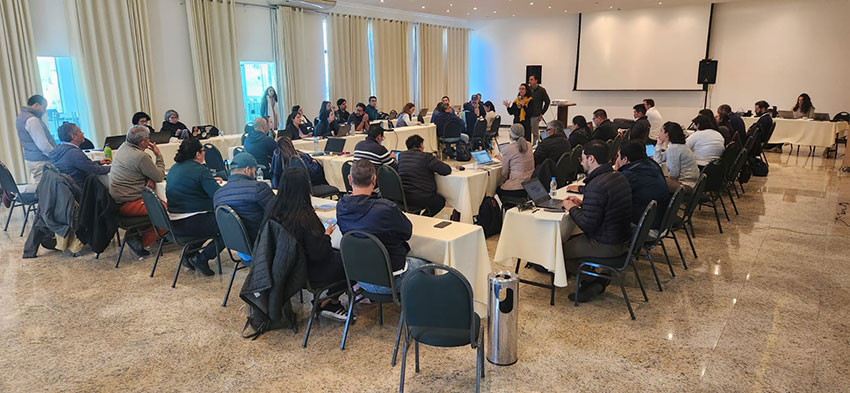
De Souza, on her part, pointed out how the discussion of restoration experiences and challenges in this region of Brazil allowed the identification of not only challenges but also common opportunities for different countries in aspects such as financing restoration on private lands or managing genetic materials.
This meeting shows how the alliance between international technical cooperation institutions such as WRI, CATIE, and other partner institutions of the 20x20 Initiative can help governments optimize the use of their resources and improve the impact of their policies for ecosystem restoration, in key aspects such as climate change adaptation and native biodiversity conservation.
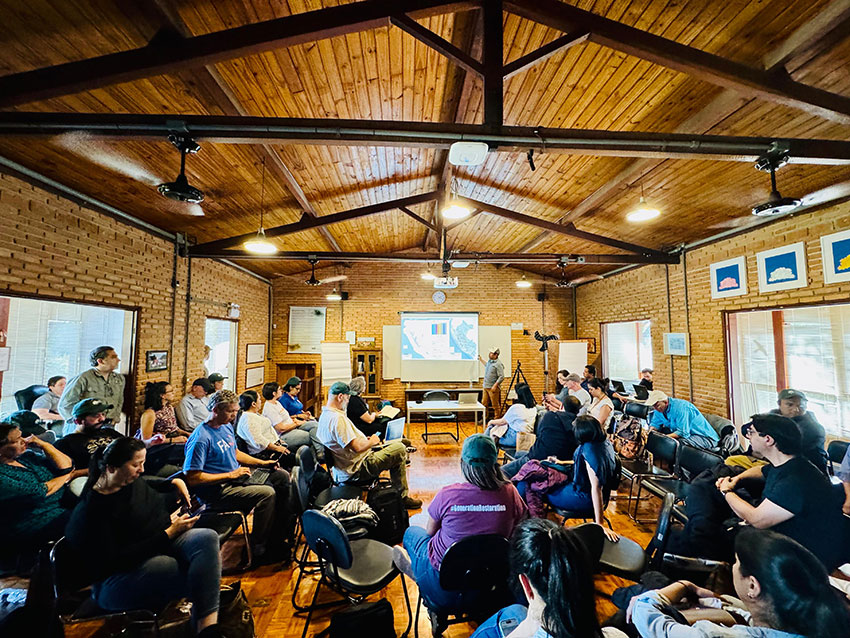
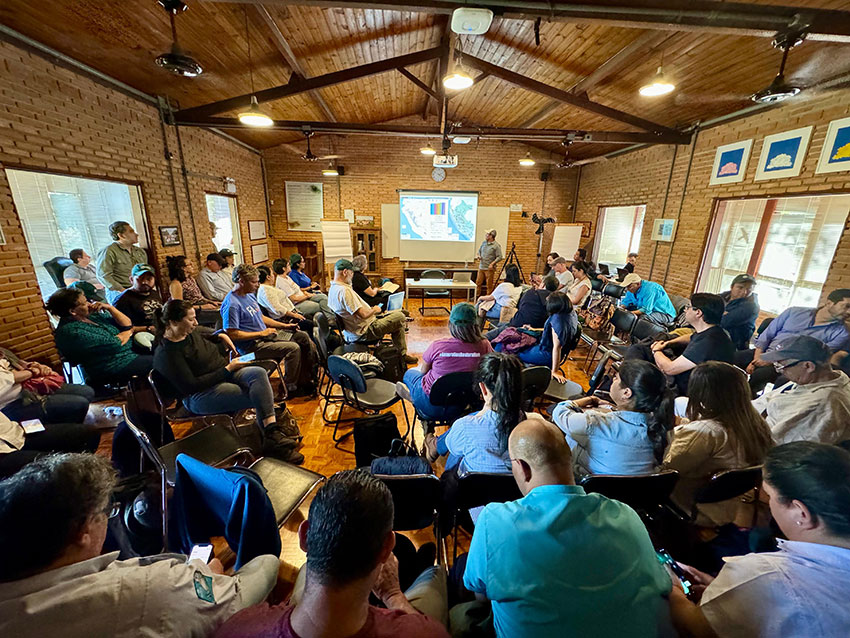
Written by:
Esteban Rodríguez Zamora
Communicator
Information Technology and Communication
CATIE
esteban.rodriguez@catie.ac.cr

